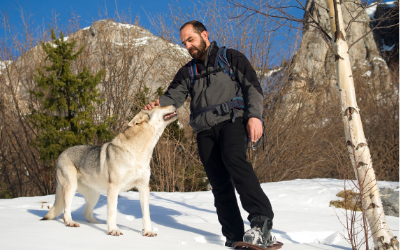
Do you have a dog that lunges at other dogs, people, or cars when on walks? Chases squirrels, rabbits, or chipmunks? Never comes when you call? Barks like mad when the doorbell rings? If not, you have trained your dog well!
If yes, you’re not alone.
Many pet owners struggle to train their dog. Some don’t have the time or know where to begin, while others have behaviorally challenging dogs. January is Train Your Dog Month, and a great time to put a resolution in place for training and help your dog to become the best he can be!
Training has obvious benefits, like improving social interactions with other people and dogs. But did you know training can also provide mental stimulation for your dog? Dogs that are bored tend to get into trouble by chewing things, like shoes and furniture. Boredom can also lead to obsessive behaviors, such as licking a paw repeatedly in one area. Teaching your dog new “tricks” gives them a mental workout and can be an excellent disruption to their daily routine.
And despite the old adage, old dogs can, in fact, learn new tricks!
The best way to train a dog is through positive reinforcement. Positive reinforcement is a training method that rewards the dog for successfully completing the “trick.” The reward can be a favorite toy, food or signs of affection (“Good boy!”).
Here are some important points to consider when starting a training program with your dog:
- Be positive.
- Start small. Introduce a simple task to start with and then perfect it!
- Make sure your dog can succeed at the task.
- Reward and praise!
- Use different reinforcement rewards to maintain the good behavior.
- Avoid punishment.
- Practice a lot. It truly does make perfect!
- Don’t get angry if your dog isn’t successful. Try a different method or take a break.
- Be patient. A change in behavior won’t happen overnight!
If you are finding it difficult to train your dog, consider signing up for an obedience class. This not only creates a weekly commitment for you and your dog, but the opportunity for expert trainers to help you identify and resolve issues. If you aren’t sure where to look, your veterinarian can help you find a reputable trainer. Your dog is worth the time and effort and you will both be happier in the long run!